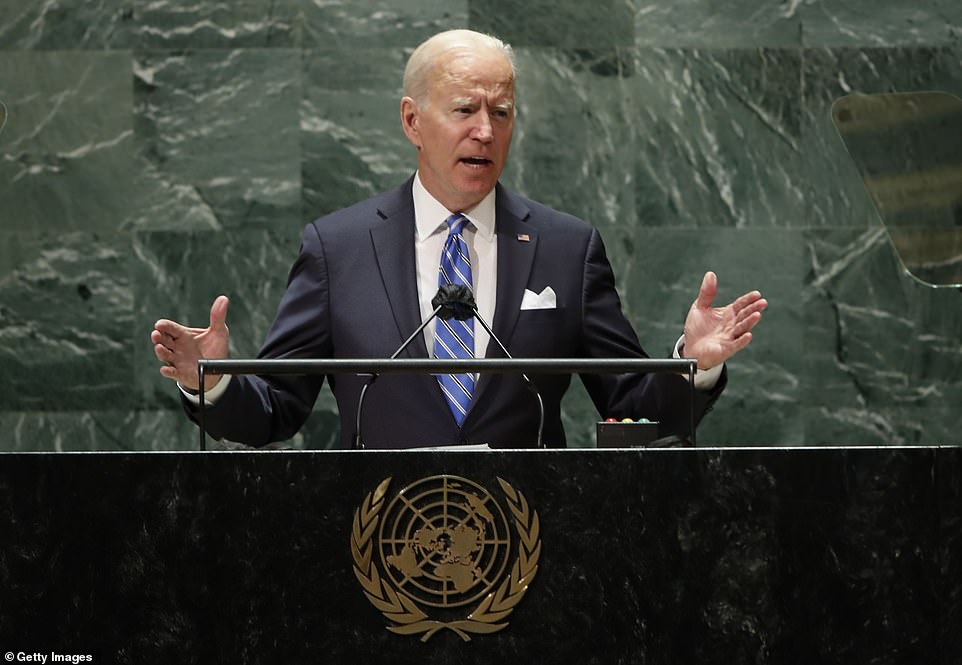
On September 21, US President Joe Biden delivered his first address to the UN General Assembly. In his speech, he laid out the vision for how the US plans to lead the world with more engagement and collaboration, with a view to building back a better world.
Most of the world seems to have been relieved at not having to put up with the bluster of the former US president, Donald Trump. Yet, eight months into the Biden Administration, allies and foes alike are still trying to get the measure of the new president and his approach to the world. While Biden has been in public life and leadership roles for almost five decades, his approach to the presidency is still evolving. While his rhetoric is one of collaboration and shared goals, his actions are starting to worry some.
Upon taking office, Biden quickly reversed several Trump-era policies and rejoined the Paris Climate Agreement and the World Health Organization (WHO). On the other hand, he has left in place many of the Trump policies that had irked US allies, such as tariffs on products from Canada. Similarly, important foreign policy decisions continue to be made without consultation with allies, even those directly affected.
The most consequential area where the US policy will have a profound effect, perhaps for decades to come, is how it chooses to deal with growing competition with China.
“We are not seeking a new cold war, or a world divided into rigid blocs,” President Biden said in his speech to the UN. China has engaged with much of the world economically through trade as well as direct investment in infrastructure and mining interests. Joe Biden’s pledge to help build infrastructure in the developing world appears to be a belated attempt to counter the growing Chinese influence through the ‘Belt and Road’ initiative.
Recent US efforts to slow down Chinese progress in key areas of technology such as AI, 5G and drone technology is likely to have limited long-term effect on China’s growth. However, it has forced many countries to rethink their engagement with China in these areas, particularly in 5G. This risks creating a world divided into rigid blocs when it comes to adoption of technological protocols, Biden’s pronouncement to the contrary notwithstanding. “We are entering a decisive decade for our world… that will determine our futures”, Biden said in his speech. No doubt about this.
While China continues to strengthen its economic footing across much of the world and is likely to become the world’s largest economy in the coming decades, the US will remain the strongest military power. It continues to have the largest military budget and a seemingly unending willingness to invest further in defence, even at the expense of important domestic priorities. The recently announced defence pact between the US, UK and Australia, labelled AUKUS, will extend US military footprint further into the Pacific region.
Whether intended or not, countries are now having to take sides. Australia has clearly aligned itself on defence with the US, even as China remains its largest trading partner. How China will react to AUKUS will foretell how alliances are likely to shift in the coming decades.
The new emerging cold war brings to mind some of the worst aspects of the one between the US and USSR. During those years, egregious human rights violations by allies were overlooked simply because countries were seen as a bulwark against communism or as standing up to the US.
Elements of such behaviour have already started to appear. India has emerged as a close ally of the US in its competition with China. As a result, human rights violations by the Indian state against its minority religious populations are being overlooked.
Recently, the US Commission on International Religious Freedom (USCIRF) described India as a ‘country of concern’ due to its violations of the rights of religious minorities. Yet it is unlikely that this may have come up in discussions between high-level US officials and PM Modi during his recent trip to Washington. Sadly, we seem to be slipping back to times when the enemy of our enemy was our friend. The new cold war may already be here.
The writer is a freelance contributor based in Washington DC.
Website: www.sqshareef.com/blogs
Source: Published in The News

